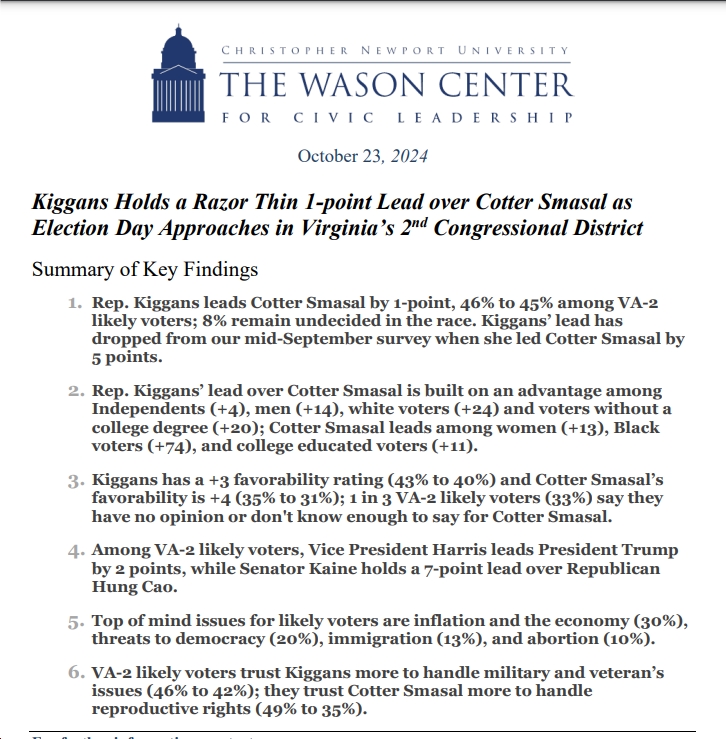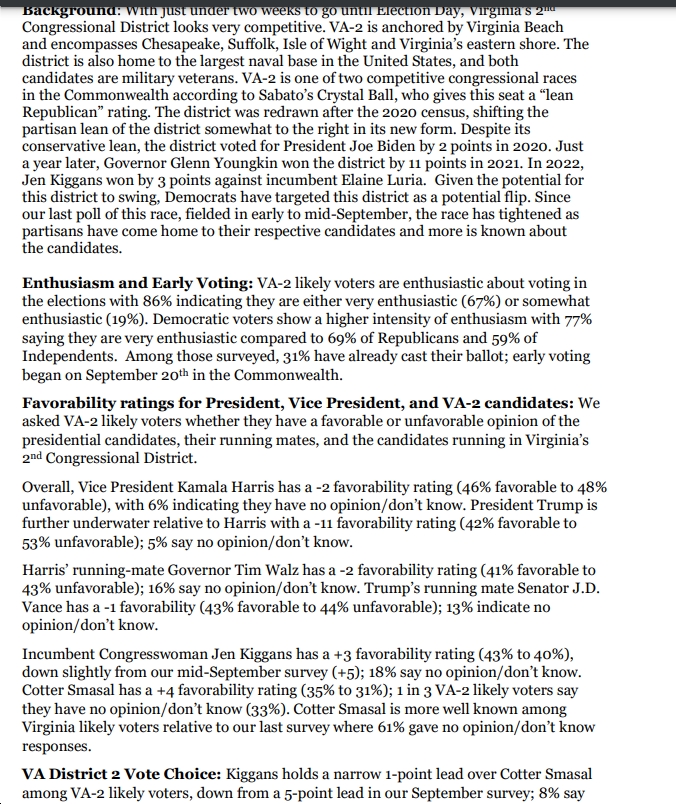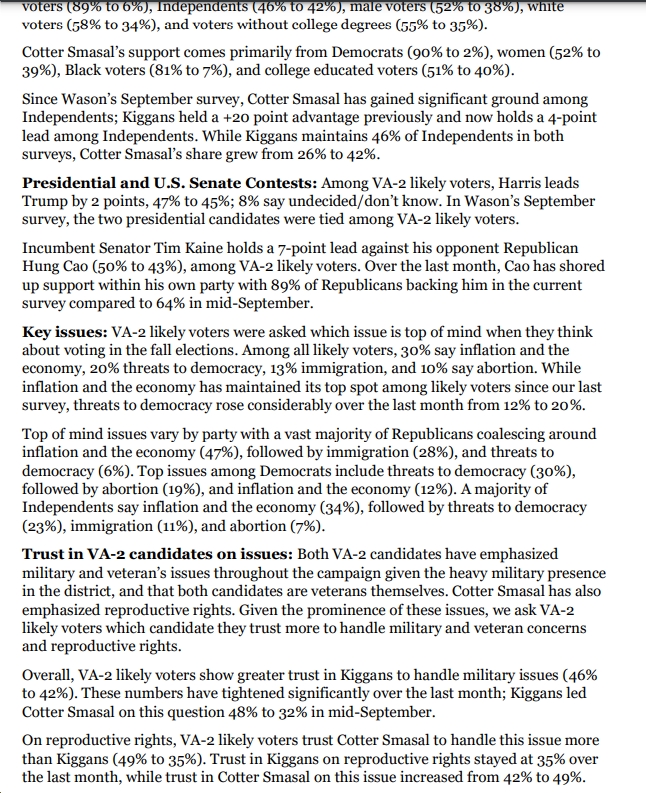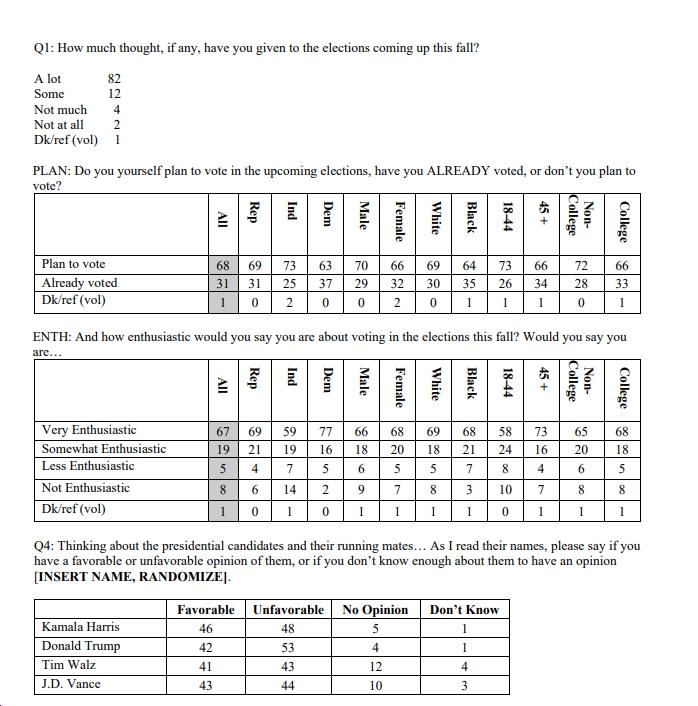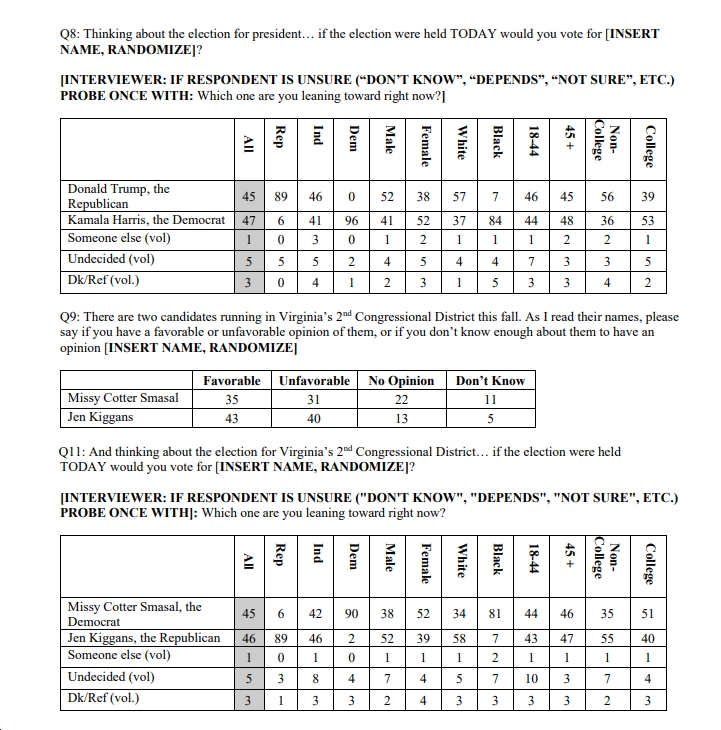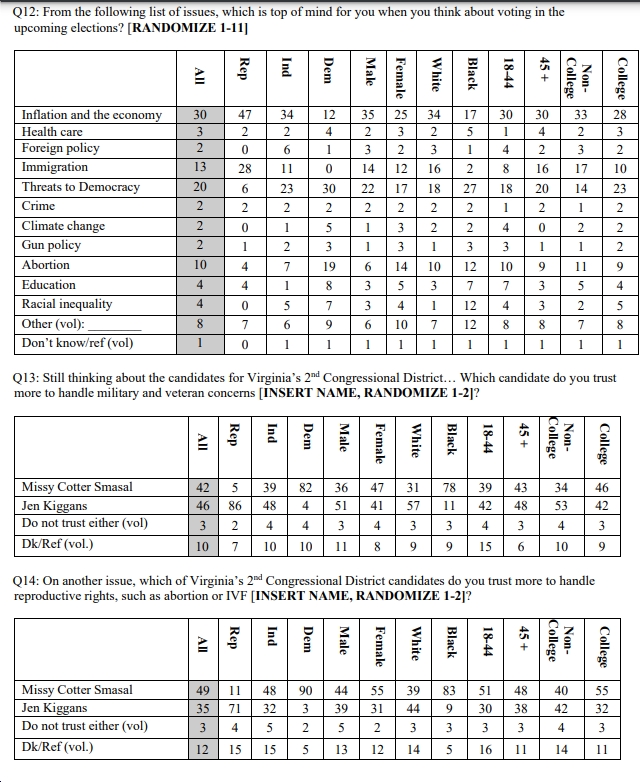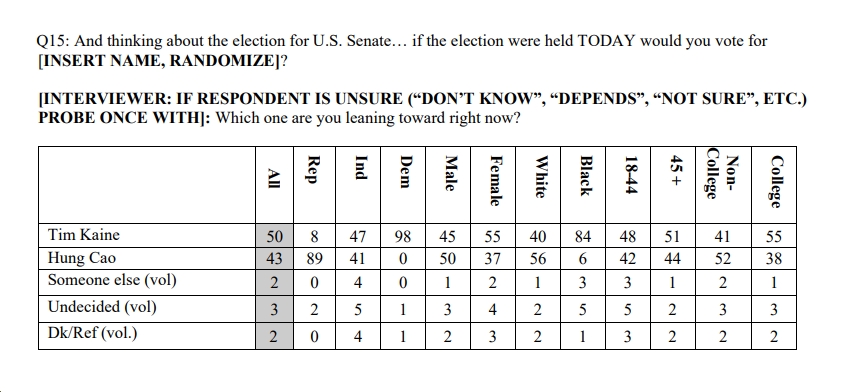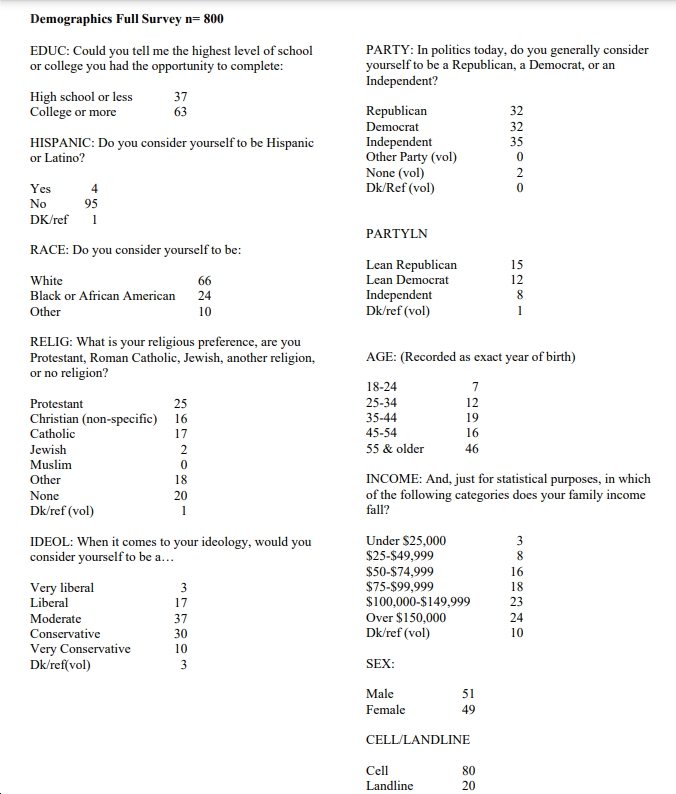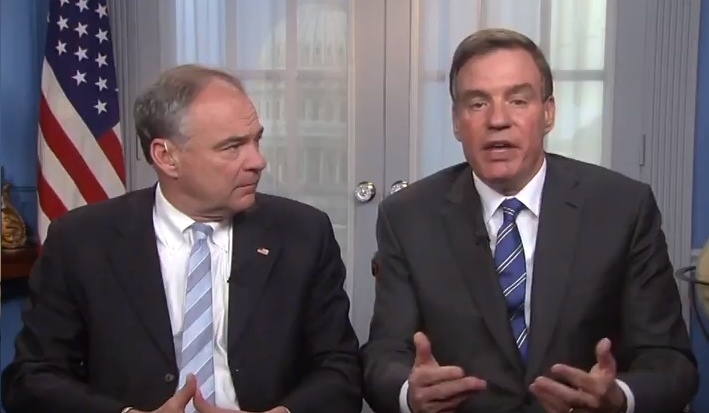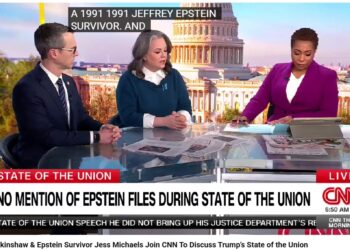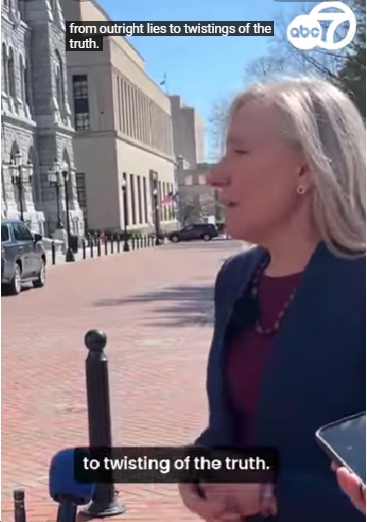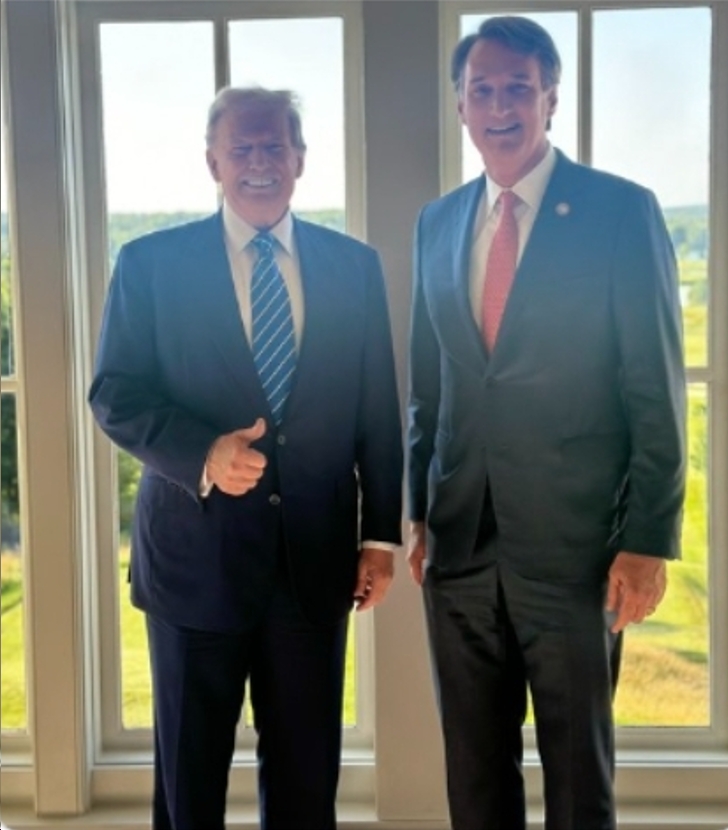We’ve got a brand-new poll this morning from the Wason Center for Civic Leadership (a high-quality, non-partisan pollster), this time on the VA02 race between incumbent Rep. Jen Kiggans (R) and Democratic nominee Missy Cotter Smasal. When looking at these results, compare to the last Wason Center poll of VA02, back on September 13, which had Kiggans up 5 points (45%-40%), Donald Trump and Kamala Harris tied at 46%, and Tim Kaine leading Hung Cao by 11 points (43%-42%).
Also note that VA02, which is centered on Virginia Beach, is considered an R+2 district (e.g., “purple”-leaning-“reddish”) went by 3.4 points for Kiggans in 2022, by 10.9 points for Glenn Youngkin in 2021, by 1.8 points (under current lines) for Joe Biden in 2020, for 4.1 points for Mark Warner in 2020 (note: Warner won Virginia as a whole by 12 points in 2020), and by 7 points for Kaine in 2018 (note: Kaine won Virginia as a whole by 16 points in 2018).
Now, just 13 days from the election, the numbers look like this, according to the new Wason Center poll:
- “Kiggans leads Cotter Smasal by 1-point, 46% to 45% among VA-2 likely voters; 8% remain undecided in the race. Kiggans’ lead has dropped from our mid-September survey when she led Cotter Smasal by 5 points.”
- “Among VA-2 likely voters, Vice President Harris leads President Trump by 2 points, while Senator Kaine holds a 7-point lead over Republican Hung Cao.”
- This could really be the key in VA02, not to mention in a lot of “purple” districts across America: “On reproductive rights, VA-2 likely voters trust Cotter Smasal to handle this issue more than Kiggans (49% to 35%). Trust in Kiggans on reproductive rights stayed at 35% over the last month, while trust in Cotter Smasal on this issue increased from 42% to 49%.”
- This is very interesting – and good to see: “VA-2 likely voters were asked which issue is top of mind when they think
about voting in the fall elections. Among all likely voters, 30% say inflation and the economy, 20% threats to democracy, 13% immigration, and 10% say abortion. While inflation and the economy has maintained its top spot among likely voters since our last survey, threats to democracy rose considerably over the last month from 12% to 20%.”
